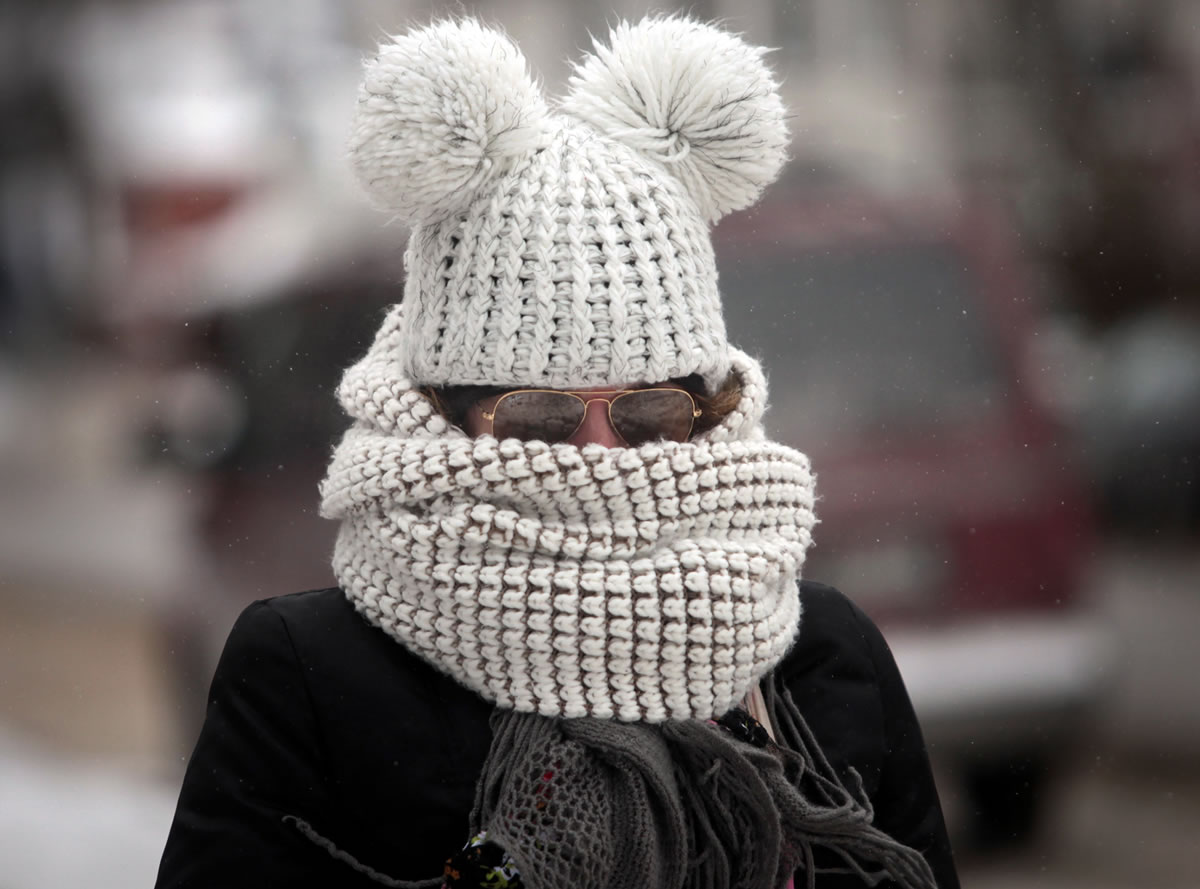For up-to-date information on canceled flights, visit the airport’s website.
SIOUX FALLS, S.D. — The deep freeze striking the Midwest, New England and even the South will be one to remember, with potential record-low temperatures heightening fears of frostbite and hypothermia.
It hasn’t been so cold in ages — 20 years in Washington, D.C.; 18 years in Milwaukee; 15 in Missouri — even in the Midwest, where bundling up is second nature. Weather Bell meteorologist Ryan Maue said, “If you’re under 40 (years old), you’ve not seen this stuff before.”
Preceded by snow in much of the Midwest, the frigid air will begin today and last a few days, funneled as far south as the Gulf Coast. Blame it on a “polar vortex,” as one meteorologist calls it, a counterclockwise-rotating pool of cold, dense air.
“It’s just a large area of very cold air that comes down, forms over the North Pole or polar regions … usually stays in Canada, but this time it’s going to come all the way into the eastern United States,” said National Weather Service meteorologist Phillip Schumacher in Sioux Falls, S.D.
The predictions are startling: 25 below zero in Fargo, N.D.; minus 31 in International Falls, Minn.; 15 below in Indianapolis and Chicago. At those temperatures, exposed skin can get frostbitten in minutes and hypothermia can quickly set in as wind chills may reach 50, 60 or even 70 below zero.
Even wind chills of 25 below zero can do serious damage, according to National Weather Service meteorologist Scott Truett in St. Louis. “A person not properly dressed could die easily,” he said of the conditions expected in Missouri at daybreak Monday.
Already, parts of New England dropped into the negatives Saturday, with East Brighton, Vt., at 30 below zero just after midnight and Allagash, Maine, at minus 36. The cold will sweep through other parts of New England where residents are digging out from a snowstorm.
Snow will reduce the sun’s heating effect, so nighttime lows will plummet in the strong northwest winds, Maue said.
The South also will dip into temperatures rarely seen. By Monday morning, western and central Kentucky could be below zero — “definitely record-breaking,” said weather service meteorologist Christine Wielgos in Paducah, Ky. And in Atlanta, Tuesday’s high is expected to hover in the mid-20s.
The arctic chill will affect everything from sports to schools to travel. Mike Duell of flight-tracking website FlightAware.com says to expect airport delays and flight cancellations. “For some of them, they run into limitations on the aircraft. They’re only certified to take off at temperatures so low, so if they get into a particular cold front it can prevent them from being able to legally take off,” he said. “In a lot of cases, it’s just ice.”
Today’s NFL playoff game in Green Bay could be among the coldest ever played — a frigid minus 2 degrees when the Packers and San Francisco 49ers kick off at Lambeau Field. Medical experts suggest fans wear at least three layers and drink warm fluids — not alcohol.
Minnesota has called off school Monday for the entire state — the first such closing in 17 years — as have the Wisconsin cities of Milwaukee and Madison.
Maue noted that it’s uncommon to have such frigid air blanket so much of the U.S. — maybe once a decade or every few decades.
Truett said there are no clear trends in weather patterns to indicate what kind of temperatures are in store for the rest of the winter.
On Saturday, Earth was as close as it gets to the sun each year. The planet’s orbit isn’t perfectly round, so while on average the distance is about 93 million miles, Earth is at perihelion every January, and on Saturday, it was 91.4 million miles from the sun. That proximity doesn’t affect the planet’s temperatures.



